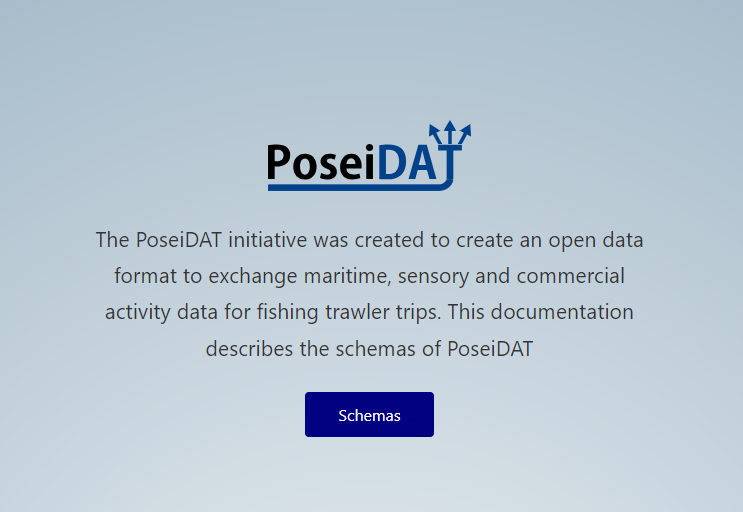Poseidat, de manier om visserijdata uit te wisselen
PoseiDAT schemas
The PoseiDAT initiative was created to create an open data format to exchange maritime sourced scientific, technical and economic activity data for fishing vessels. This repository contains the core schemas for the PoseiDAT data interchange formats and exposes itself as an NPM package that can be used to create and validate PoseiDAT journals, entries and events.
Purpose and origins
There is a growing demand for data collection and analysis in the world of commercial fishery. Government and scientific parties have interest for both preservation, inspection and law enforcement. Commercial entities have an interest for operational efficiency and fulfilling their legal requirements.
There are various existing studies all working on parts of available data sets which all have different formats and data ranges. The Electronic recording and reporting system (ERS) is used to record, report, process, store and send fisheries data (catch, landing, sales and transhipment) and is often used as a source for these studies. The ERS is focused on government use and will lack lower level operational details. There are also new data sets emerging like sensory data which has no place in an ERS. On the other end of the spectrum organizations such as ICES collect surveys for scientific and data analysis purposes. These surveys are more focussed on a certain subject and may not have enough relational markers for commercial business analysis.
The PoseiDAT initiative was created to create something we call the vessel journal. This is the super set of data that brings together all the data collected during a vessels lifetime. A journal is comprised of entries that can be sent and collected piecemeal. An entry is time based log which can contain one or more events. The addition of entries can occur both on board a vessel and at a central land based location by the commercial entity running the vessel. This journal could then be used as a source for data sharing to scientific studies and systems like an ERS. Having a standard schema for each entry type will hopefully allow more system to exchange their data. By distinguishing between entry types an export can be filtered on the types of data the owner wants to share with other systems.


